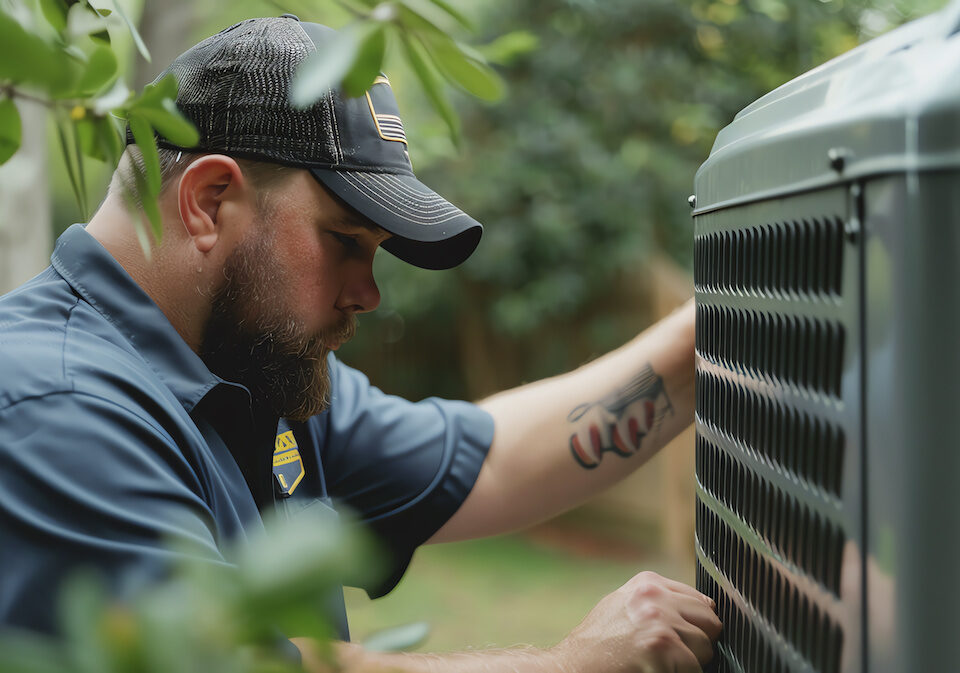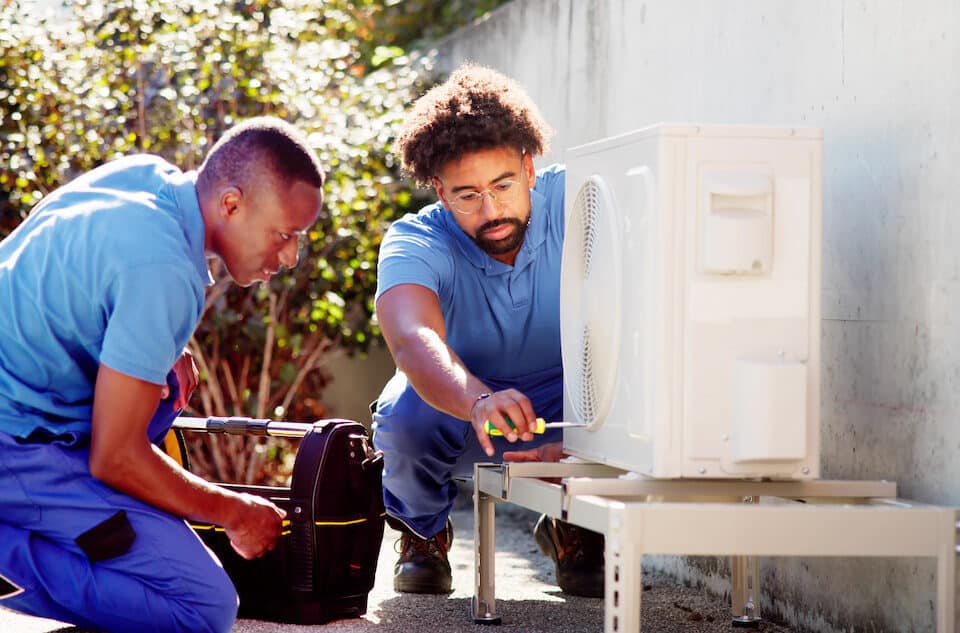How is Your Heater Working this Winter?

Georgia may not have the chilliest winters, but we certainly run into cold weather. Your home’s heater helps you get through the holiday months without getting sick or simply being uncomfortable indoors. However, a malfunctioning heater is as worse as having no heater at all. Get your heater working to have a happy and healthy holiday season!
In this blog by the experts at TRUST Heating & Air, we discuss how important our heaters are in the winter. Then, we walk you through the steps to ensuring the holidays will be warm and cozy, protecting your health and overall well-being.
Heaters in the Winter
While it may be tempting to go without and save some cash. After all, you can always throw on extra layers and bundle up. It can be risky to struggle through the winter without your heater. Dry and chilly indoor air often leads to lung issues, cold symptoms, frozen pipes, and other issues, like:
Heart Problems
When the surrounding temperature decreases, your blood vessels tighten, which stresses the circulatory system. While this may be fine in moderation, attempting to last the winter with no heat may result in ischaemic heart disease, strokes, hemorrhage, or coronary heart disease. Unfortunately, the decline in health can go as far as being life-threatening.
Respiratory Issues
It doesn’t have to be freezing for the air to cause complications with the respiratory system. When the indoor temperature drops below 60 degrees F, it can negatively impact the respiratory system. Those with chronic respiratory illnesses, like asthma, have a higher risk of experiencing health issues when indoor temperatures are too cold for comfort.
Cooler temperatures are the perfect conditions for mold growth that agitates allergies in most individuals. Furthermore, people have a higher chance of experiencing cold and flu symptoms.
Sleep Disturbances
Sleeping in a hot room is challenging, which is why people commonly set the temperature lower before they go to bed. However, your sleep may also suffer when the temperature is too low. Our bodies have a unique way of adjusting to sleep. The bodily temperature reduces with more blood flow to the hands and feet as it moves away from the core. From here, the heat escapes to the environment, lowering your body temperature.
When the indoor temperature is excessively low, your blood vessels constrict, which makes it more difficult for the body to release the heat. Therefore, when it’s extra chilly outside, it’s vital to have your heater working in tip-top shape to be at your healthiest and get quality rest.
Mood and Mental Health
A lack of a heater through the winter may also harm your mood and mental health. Like many things in your environment, your home’s temperature can add stress, leading to anxiety, depression, or other mental illnesses. Cold temperatures often alter a person’s mood to be more irritable and less motivated to do ordinary daily tasks.
So, not only do you need to be concerned about your physical health when your heater fails, but you also must consider your mental health.

Getting the Heater Working this Winter
Georgia winters aren’t as drastic as others. However, most homeowners would agree that having their heater working is one of the most important things to check off your list as you prepare for the upcoming winter months.
Continue reading to discover the top tips for getting your heater ready for the temperature drop.
Switch the HVAC Filter
If you don’t already have a good habit of swapping out the air filter each season, now is the perfect time to start! For the best air quality, we recommend changing the filter every 30 to 60 days. Or you can go with the golden rule of switching the old for the new once the filter looks discolored or clogged with debris.
You’ll want your heater to work as efficiently as possible for the winter months. Be sure to change the air filter before the start of the season.
Heater Working? Clear the Area
It’s critical to clear the area surrounding your heater before turning it on. A fire may quickly spark when things like boxes, clothes, documents, or furniture are on top of or around the hot heater. Keep your family safe by removing anything covering or nearby the heater. Similarly, clear the areas around the vents throughout the house to avoid a sudden fire.
Protect the Condenser
If you plan on shutting down the HVAC unit for the season to run only the heater, it’s wise to get a cover for the outdoor unit. When the machine sits for a couple of months, ice, dust, leaves, and other debris may get inside the AC and clog the airflow. Even worse, when you return to the HVAC system to kick it back into gear, an unprotected unit is more likely to have problems leading to expensive repairs.
Prepare the Vents
You should also consider dusting the vents throughout your home. Otherwise, the build-up will cycle through the air when you turn the heater on. Your vents and heater will still function in most cases. However, it will likely overwork itself leading to a higher electricity bill.
Slowly Turn Up the Temperature
Your HVAC or heater has a higher chance of breaking down when you rush the process by immediately turning the heat up to full blast. Instead, begin turning the temperature up, little by little. After a few minutes of increasing the temperature, you can bump it up a little more if all goes well.
Of course, if your AC unit doesn’t start up as it should, the best thing to do is call your local experts.
Avoid Excessive Dryness
Part of getting your heater working this winter is to assess the humidity levels in your home. Chilly weather typically lacks moisture, and running the heater can worsen matters. Dry air can quickly cause illness and damage the furniture and flooring in your home.
Prevent this from happening by paying close attention to your indoor humidity levels once you start running the heater for winter. If necessary, consider purchasing a humidifier to add moisture back into the air and make living more comfortable and much healthier.

Schedule a Maintenance Appointment to Keep that Heater Working
If you want your heater working the best it can through the frigid winter, scheduling a regular maintenance appointment with your local experts is the only way to ensure you’re set up for success. When an HVAC specialist comes to your home to inspect the unit, they’ll run tests and check all the system’s vital components to assess its condition. Hopefully, the inspection will confirm that your heater is ready and reliable for winter.
However, this isn’t always the case. Routine maintenance may also expose issues you must address to avoid future emergencies. It may cost you some cash then, but you’ll thank yourself later when you have a working heater to keep you warm and cozy over the holidays.
We encourage all homeowners to have their HVAC system inspected every season. If you are preparing for winter, it’s important to schedule an appointment at the end of fall rather than when the temperatures begin to drop. That way, the heater is good to go as soon as you need it the most.
Stay Warm this Winter, and Keep Your Heater Working
No one likes to freeze all winter long. But now you know how cooler temperatures can negatively impact your physical and mental health. Use the information in this blog to best prepare for the frigid months ahead.
And don’t forget to schedule your winter HVAC inspection with TRUST Heating & Air. With our skilled and experienced team, you’ll know you are in good hands. Reach out to our friendly staff today to get ready for the chilly winter season!



